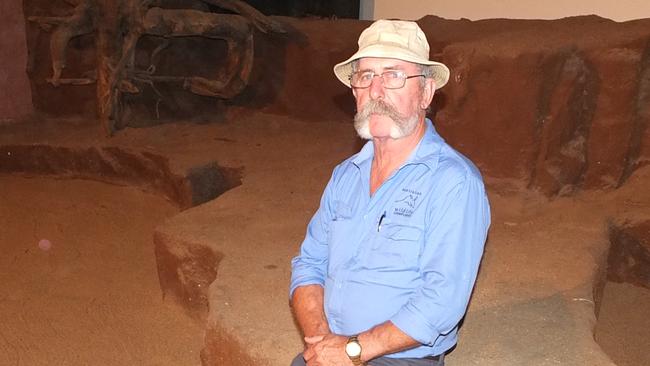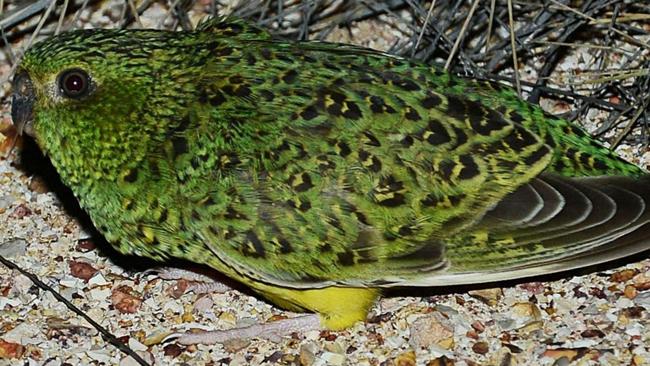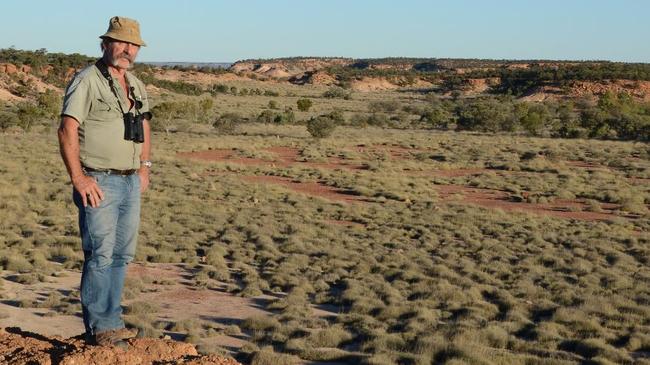Night parrot naturalist in jail after hiding out for 13 months in the bush
One of Australia’s best-known naturalists, John Young, hid in dense rainforest in north Queensland for more than a year, avoiding a concerted police hunt for him over undisclosed charges.

One of Australia’s best-known naturalists hid in dense rainforest in north Queensland for more than a year, cutting off contact with the outside world while evading a concerted police hunt to track him down.
John Young failed to appear before the Tully Magistrates Court, near his South Mission Beach home, in August 2023 on four charges.
A spokesperson for Queensland’s Justice Department said the charges cannot be revealed because to do so may potentially lead to the identification of a victim of sexual assault, a child, or a person whose identity is subject to a publication restriction.
Mr Young is understood to have disposed of many possessions, including his phone and computer, and closed his social media accounts.
He was arrested by police from the remote Aboriginal community of Lockhart River at Iron Range near the top of Cape York Peninsula last September – 13 months after disappearing.
He was charged with failure to appear in accordance with an undertaking and remanded in custody when the matter came before the Cairns Magistrates Court.
Young has been detained in the Lotus Glen Correctional Centre on the Atherton Tablelands since then. He will appear before the Tully Magistrates Court next Thursday on the failure to appear charge. There are no suppression or non-publication orders relating to the charge.
The four other charges were referred to the Cairns District Court. The Queensland Department of Public Prosecution lodged an indictment listing the charges on Friday and the matter has been listed for a hearing before the court on May 14.

In February 2024, five months after Mr Young disappeared, close associate and fellow North Queensland naturalist Lloyd Nielsen emailed mutual friends.
“I have not spoken to him since about May (2023) and have heard nothing from him since last August,” he said. “However, he did make contact with someone two weeks ago he told them he was OK, that he was living in the bush, and would be there indefinitely. Where, nobody knows.”
Mr Nielsen said Mr Young had ditched his computer and other equipment.
“The rumour up here is that there is a massive family feud taking place and (family members) have been trying to get him into court since mid-2023.
“So in typical fashion, John disappeared.”
The Australian confirmed that Mr Young had fallen out of favour with close family members before his disappearance.
Mr Young attracted attention internationally in 2013 when he became the first person to photograph the critically endangered night parrot, described then as the world’s most mysterious bird.
However, his career in natural history took a battering when the Australian Wildlife Conservancy, which employed him as an ecologist, published a report in 2019 that concluded his claims to have discovered night parrots at other sites, and to have photographed the bird’s nest for the first time, were false.
The Australian revealed in 2006 that Mr Young manipulated a photograph of a common parrot to claim it was a species previously unknown to science, which he dubbed the blue-browed fig-parrot. The newspaper revealed in 2022 that a photograph Mr Young claimed to be the first of the nest of another critically endangered bird, the buff-breasted buttonquail, was a manipulated image of the common painted buttonquail.
Mr Young has also falsely claimed to have rediscovered the paradise parrot, the only bird species on mainland Australia that has become extinct.

The 71-year-old retains a large and loyal following among wildlife enthusiasts, and his supporters claim he is the victim of attacks by the media seeking to undermine his reputation.
Wayne Butcher, mayor of the Lockhart River community council and a friend of Mr Young who has worked with him on wildlife documentary filming and other projects in the Iron Range forests, said Mr Young avoided contact with local Indigenous people, many of whom knew him well, during his absence. Locals were astonished to learn he had been hiding for so long in the area.
According to Mr Butcher, other than whatever food supplies Mr Young had at the start, he would have had no difficulty surviving in the forest.
“There is plenty of fruit and other bush tucker and John knew all about bush tucker,” he said. “He could fish and trap and gather plants. Plenty of water. He could climb a 50m tree like a monkey. John is a real gun of a bushman. He knew that country really well and it’s a huge area to hide in.”
Police are convinced Mr Young was not assisted by anyone while in hiding.
Mr Young often told friends that the rainforests of Iron Range, now largely protected in the Kutini-Payamu National Park, were his favourite retreat.
He has told naturalists that prior to the 1980s, when he was a keen collector of bird eggs, he illegally plundered many nests of the palm cockatoo and other rare birds.






To join the conversation, please log in. Don't have an account? Register
Join the conversation, you are commenting as Logout